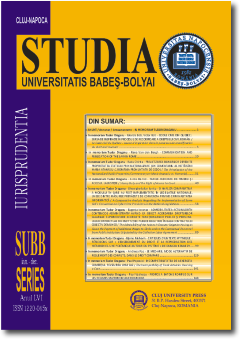PROCEDURAL ROUTES AND ALLOCATION OF CASES IN HUNGARIAN CIVIL COURTS
PROCEDURAL ROUTES AND ALLOCATION OF CASES IN HUNGARIAN CIVIL COURTS
Author(s): Anna NyilasSubject(s): Civil Law, Comparative Law
Published by: Studia Universitatis Babes-Bolyai
Keywords: civil procedure; procedural routes; accelerated procedure; allocation of cases;civil procedure; procedural routes; accelerated procedure; allocation of cases;
Summary/Abstract: During the codification process of the Hungarian Code of Civil Procedure, there was an open debate on whether the course of civil procedure should be unified, or some kind of differentiation would be more appropriate and efficient. There are various issues that arise if the legislator decides to have a number of different procedural routes in litigation. For instance, what should be the grounds of distinction, and what aspects of the procedure need to be regulated within these procedural routes. In addition, the choice between the routes can be given solely to the legal rule, or to the judge in the particular case, or to be discussed jointly by the parties and the judge in an early stage of the procedure.This study examines the existing procedural routes in Act CXXX. of 2016. on the Hungarian Code of Civil Procedure, their characteristics and the main areas of future development. It aims to explain the underlying factors the judge may consider when choosing between these routes. It also points out the scope of discretion the rules allow for the judge in managing the case, and also the limits of judicial discretion. Besides, some applied and functioning solutions from certain European jurisdictions are taken into consideration.
Journal: Studia Universitatis Babes Bolyai - Iurisprudentia
- Issue Year: 67/2022
- Issue No: 1
- Page Range: 186-209
- Page Count: 24
- Language: English

